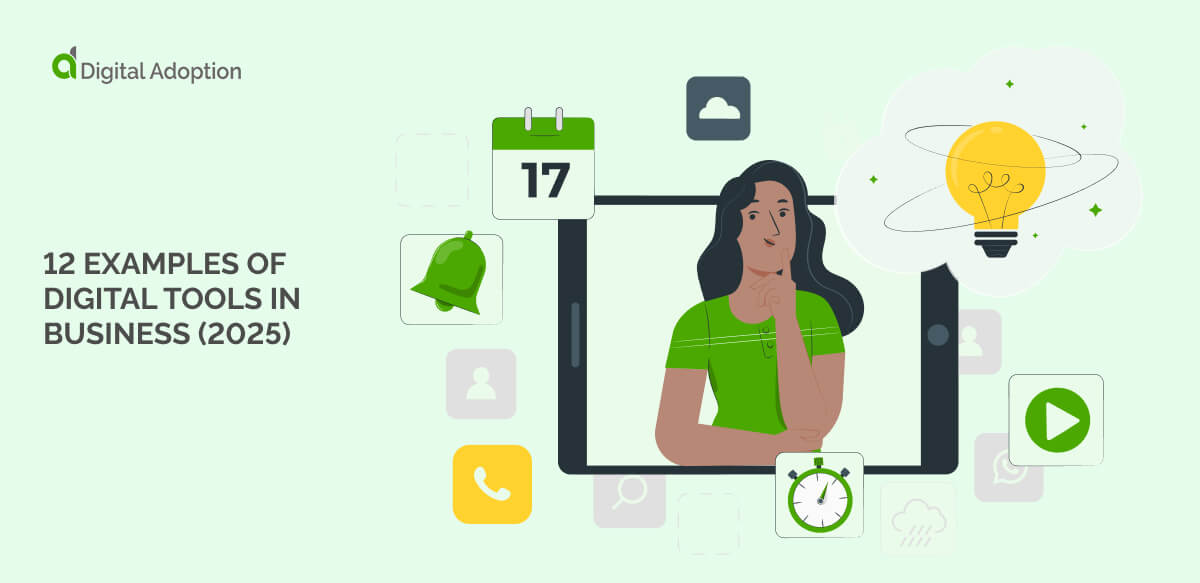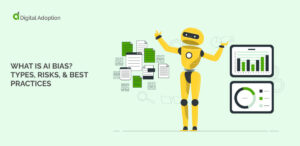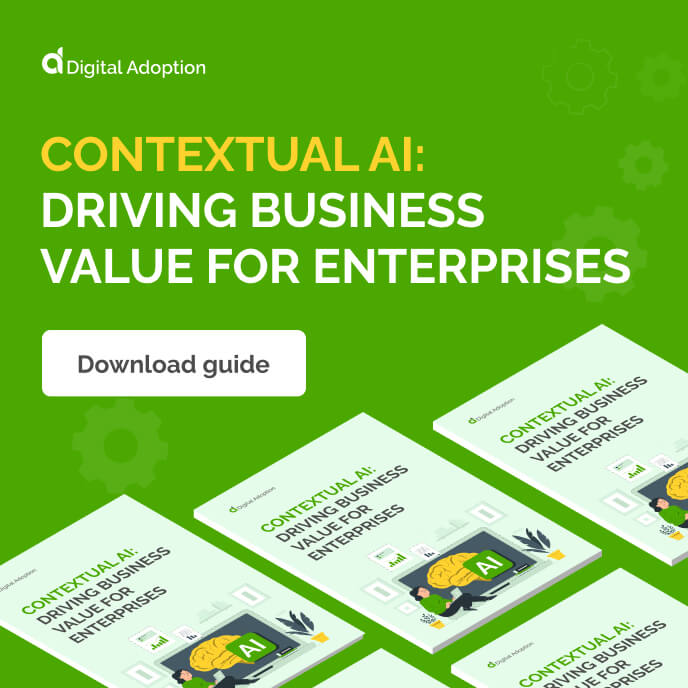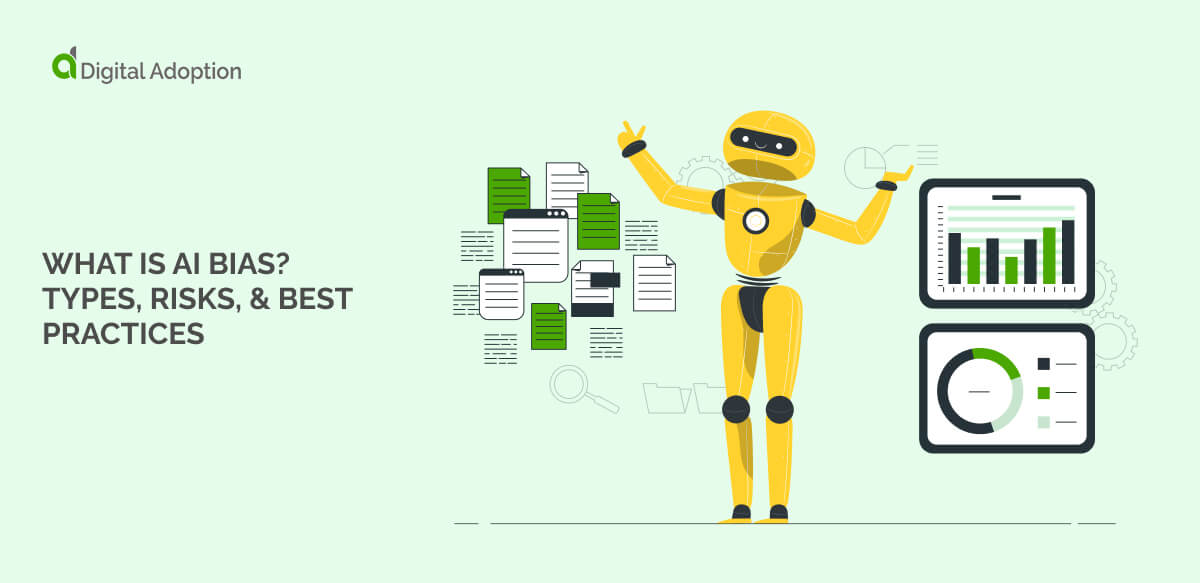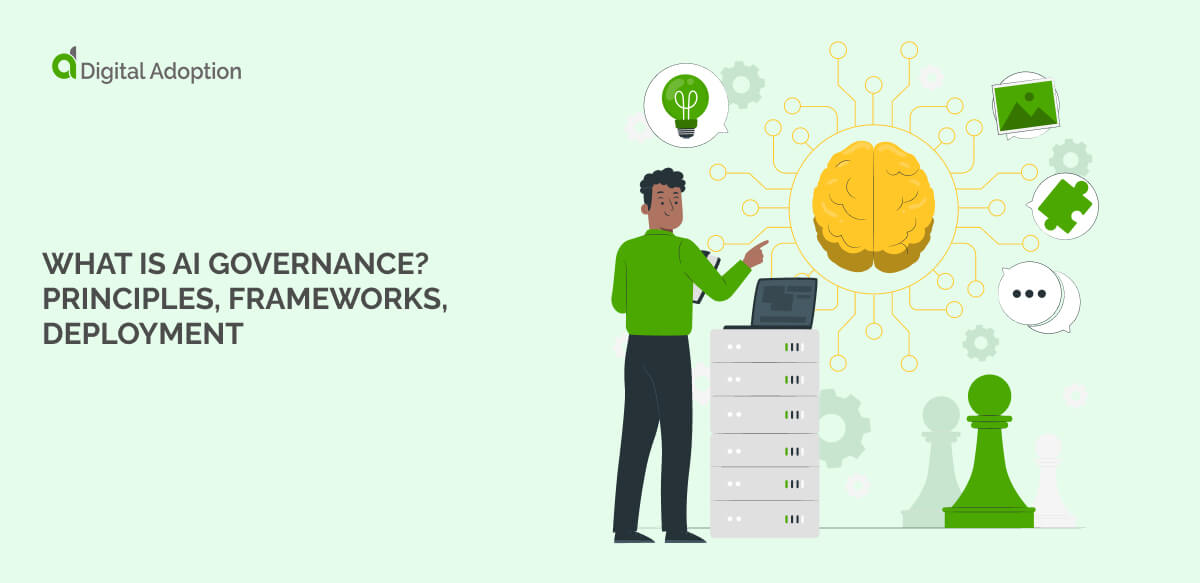According to a Gartner survey, the average desk worker uses eleven digital tools daily to complete or support their work.
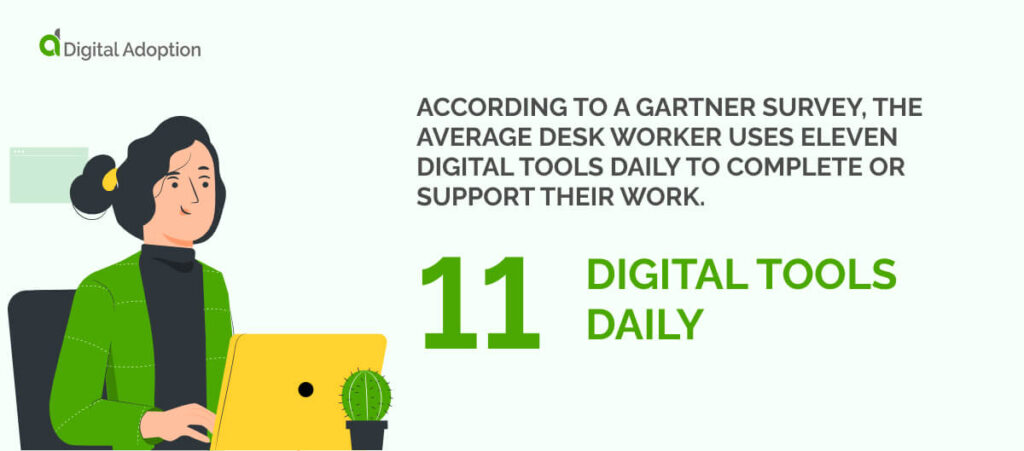
This clarifies how digital technology has impacted knowledge workers and business strategy today. However, in a rush to transform, business leaders often opt for quantity over quality when investing in digital tools.
The variety of solutions available on the market can make it challenging for CIOs and digital leaders to select the right tool to address their organization’s needs.
This article will explore 12 digital tool examples designed to address specific challenges and support long-term goals, ensuring investments deliver meaningful results.
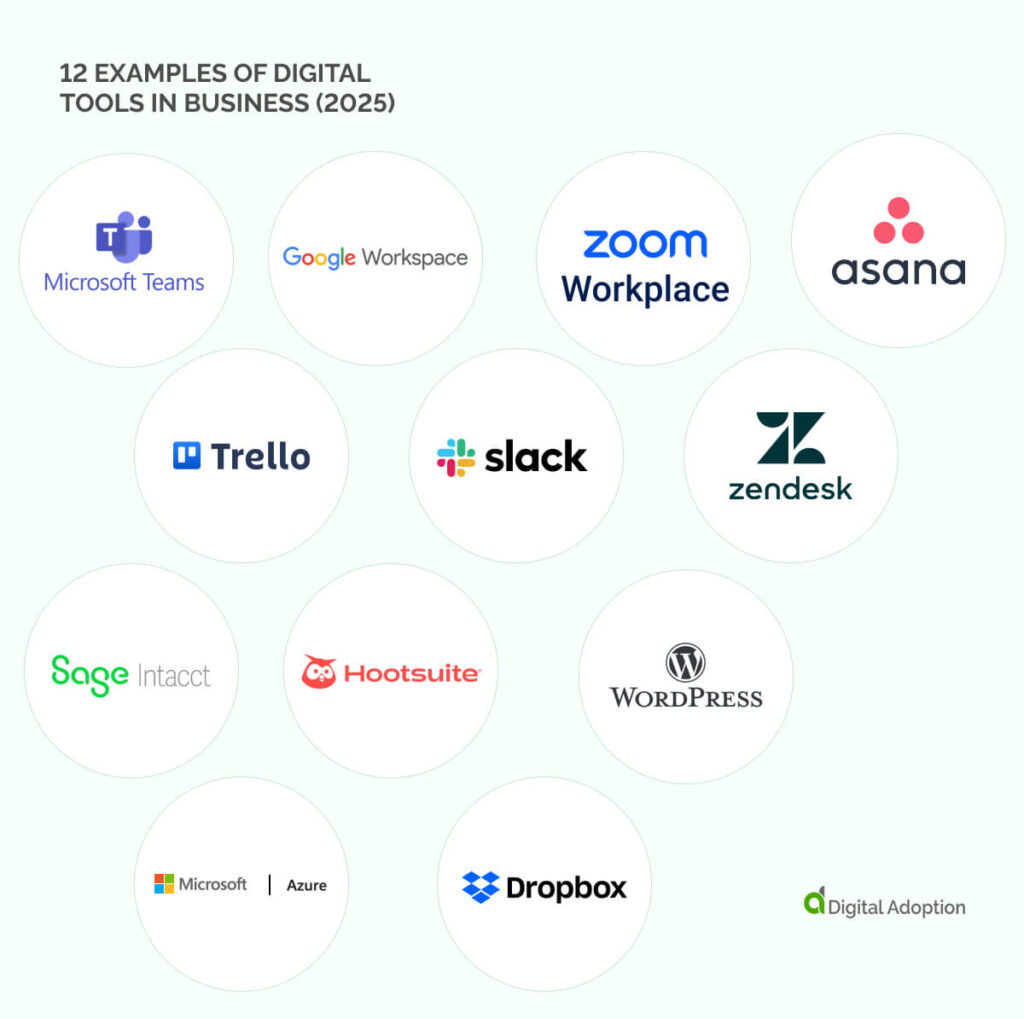
1. Microsoft Teams
- G2 rating: 4.3/5 (5,734 reviews)
- Best for: Workplace collaboration | Communication
Starting off our list is Microsoft Teams. This platform has long been trusted by businesses industry-wide for its extensive suite of digital tools. Solutions include Teams Essentials for affordable video, chat, and phone communication.
Teams’ Phone adds cloud-based calling with landline features. Teams’ Rooms improve hybrid work with upgraded meeting spaces. Microsoft 365 Copilot in Teams cleverly leverages AI to provide answers, insights, and recommendations based on chat interactions directly within the platform.
Key features
- File sharing: Share, access, and collaborate on files in real-time.
- Video and audio conferencing: Host meetings with high-quality audio and video.
- Live chat: Communicate instantly with team members through secure messaging.
Integrations
- Mio: Connects Teams and Google Chat to reduce silos and improve connectivity.
- Zoom: Enables video meetings via bot commands and shareable links.
- 3CX: Unifies communication channels on a central platform.
Pricing
- Single Pricing Plan | $4.80/Month
2. Google Workspace
- G2 rating: 4.6/5 (42,730 reviews)
- Best for: Video conferencing | Business instant messaging | Document creation
Google Workspace is a hugely popular platform used by businesses, academics, and individuals worldwide. Aimed at aiding collaboration and productivity, it offers a complete suite of digital tools, such as email, chat, file storage, and video conferencing.
Able to cater to the demands of modern business, it provides solutions that help optimize workflows, with tools for project management, team communication, and a host of AI-enabled offerings.
Key features
- Device syncing: Access and update files across all your devices in real-time.
- File following and sharing: Track file changes and securely share with others.
- Device management: Control and secure data across connected devices.
Integrations
- Atlassian: Integrates Jira and Confluence with Google Workspace for optimized project management.
- Figma: Embeds design files within Google Workspace apps for enhanced collaboration.
- SAP: Connects enterprise data with Google Workspace to improve workflows and insights.
Pricing
- Business Starter $6.00/Month | Business Standard $12.00/Month | Business Plus $18.00/Month
3. Zoom Workspace
- G2 rating: 4.5/5 (56,020 reviews)
- Best for: Meetings | Collaboration | Remote work
An AI-driven platform enabling “limitless human connection,” Zoom Workplace provides cross-functional teams with advanced tools for collaboration and hybrid work.
It offers video, audio, phone, and chat capabilities alongside features like mail, scheduling, whiteboards, surveys, and flexible workspaces. Zoom Phone provides internet-based calling, call management for businesses (PBX), and unique direct dial numbers for employees.
Key features
- Group live chat: Exchange messages in real-time with multiple participants.
- Audio and video conferencing: Host meetings with high-quality audio and video.
- Scheduling: Plan and organize meetings with integrated scheduling tools.
Integrations
- ServiceNow: Enhances employee experiences and optimizes customer service delivery.
- Salesforce: Simplifies customer and campaign management with the Zoom for Salesforce Lightning App.
- Microsoft: Enables improved collaboration through integration with Microsoft tools.
Pricing
- Basic Free/Month | Pro $15.99/Month | Business $21.99/Month | Business Plus $26.99/Month
4. Asana
- G2 rating: 4.5/5 (10,844 reviews)
- Best for: Task management | Automation | Reporting dashboards
Asana is an end-to-end work management tool that lets individuals and teams hit their goals from a centralized space. Coordinate and collaborate across teams and departments with features like multi-homing, letting different project teams work on the same task together.
Asana Workload helps track team capacity and task distribution. The My Tasks portal provides a single source of truth for pending tasks, deadlines, and updates, helping employees stay productive and organized.
Key features
- Asana @mention: Notify team members by tagging them in comments for quick action.
Asana goals: Set targets, track progress, and align tasks with company objectives.
Asana AI: Automate tasks, predict timelines, and suggest priorities using machine learning.
Integrations
- Microsoft Teams: Sync tasks and updates within Microsoft Teams for easy collaboration.
- Splunk: Visualize Asana project data in real-time with Splunk.
- Adobe Creative Cloud: Attach and share Adobe files directly in Asana.
Pricing
- Personal Free/Month | Starter $10.99/Month | Advanced $24.99/Month | Enterprise Pricing available upon request
5. Trello
- G2 rating: 4.4/5 (13,657 reviews)
- Best for: Organizing tasks | Managing projects visually
Trello is another excellent example of a leading digital tool for enhancing team productivity. This visual collaboration tool creates a clear view of teams’ responsibilities, letting users build projects, track progress, assign tasks, and stay on track with wider business goals.
Simplify digital workflows with built-in automation to run commands and set rules for actions with Trello Butler. It offers intelligent tips, app integrations, and tools for creating custom cards.
Key features
- Lists: Organise tasks into custom lists for improved workflow.
- Boards: Visualise and manage projects with custom boards.
- Cards: Track tasks with detailed cards, notes, due dates, and attachments.
Integrations
- Zoho Desk: Create Trello cards directly from Zoho Desk tickets
- TestLodge: Link to your test projects and create cards whenever a test fails.
- Slack: Receive updates in Slack when Trello activity occurs.
Pricing
- Basic Free/Month | Standard $5.00/Month | Premium $10.00 per user/Month | Enterprise Pricing available upon request
6. Slack
- G2 rating: 4.5/5 (33,840 reviews)
- Best for: Team communication | Collaboration
The next digital tool on our list is Slack. This industry-leading platform centralizes people, projects, data, and information to keep teams agile and on track.
Users can enjoy Slack’s conversational user interface (UI) to collaborate with their team in real-time. Slack Enterprise offerings provide larger firms with the latest enterprise automation needs, whereas Slack Atlas gives you a holistic view of your org with a dedicated directory function.
Key features
- Slack Channels: Organise communication by topic, project, or department.
- Private messaging: Secure one-on-one or group chats.
- AI support: Automate tasks, summarise conversations, and enhance workflows with Slack AI.
Integrations
- Salesforce: Link Salesforce data with Slack for real-time updates.
- Amazon Web Services (AWS): Monitor and manage cloud infrastructure in Slack.
- Google Drive: Share, access, and edit Google Drive files within Slack channels.
Pricing:
- Basic Free/Month | Standard $6.67 per user/Month | Plus $12.50 per user/Month | Enterprise Grid Pricing available upon request
7. Zendesk
- G2 rating: 4.3/5 (6,137 reviews)
- Best for: Customer support | Service management
Zendesk support suite is a long-established software-as-a-service (SaaS) platform giving businesses the tools they need to enhance customer success.
They offer a range of solutions for customer support, sales, and communication needs that help businesses move faster. These include AI-powered workflows, agents, and automation for cross-channel communication via phone, email, and social media. Zendesk’s complete “out-of-the-box” solution is easy to implement and scale according to your needs.
Key features
- Ticket management: Track, prioritize, and resolve customer issues.
- Real-time messaging: Communicate instantly with customers and teams.
- AI automation: Automate support and enable self-service chatbots on your website.
Integrations
- Geckoboard: Displays customer support metrics in real-time.
- Notion: Connects knowledge bases to enhance customer support.
- Azure DevOps: Integrates Zendesk with development tools to manage support tickets.
Pricing
- Team Support $19/Month | Team Suite $55/Month | Growth Suite $89/Month | Pro Support $55/Month | Pro Suite $115/Month | Enterprise Support $115/Month | Enterprise Suite $169/Month
8. Sage Intacct
- G2 rating: 4.3/5 (3,591 reviews)
- Best for: Financial management | Accounting automation
Sage Intacct is a cloud-based finance platform that gives you a deep view of your business finances and inventory. This digital tool example is ideal for businesses that wish to scale, offering reputable online accounting and business services globally.
It includes tools for general ledger, accounts payable, accounts receivable, and cash management. Order management and time tracking are also supported. Other features include project accounting, revenue management, and global consolidations.
Key features
- General ledger: Organize and track all financial transactions in one system.
- Accounts receivable and payable: Monitor and manage payments and collections.
- Reporting and analytics: Create financial reports with customizable metrics.
Integrations
- Swoop: Finances Sage software and implementation costs.
- Ramp: Syncs credit card transactions easily with Sage Intacct integration.
- Versapay: Streamlines AR processes to improve efficiency and cash flow.
Pricing
- Free trial No cost | Contact Sage for pricing options
9. Hootsuite
- G2 rating: 4.2/5 (4,927 reviews)
- Best for: Social media management | Campaign optimization
Hootsuite is a platform designed to manage social media content across multiple accounts. It allows users to create, schedule, and analyze posts from a single, centralized dashboard. The platform offers automatic scheduling, task management, and analytics tools to measure performance.
Users can easily post to various social networks from one tab. This helps improve customer relationship strategies and content management regardless of platform.
Key features
- Social analytics: Track performance metrics across social platforms.
- Campaign optimization: Adjust strategies based on real-time data.
- Customizable reports: Create and export tailored performance reports.
Integrations
- LinkedIn: Publish posts and manage updates directly from Hootsuite.
- Threads: Track and respond to conversations efficiently.
- Instagram: Schedule and analyze content performance.
Pricing
- Professional $99/Month | Team $249/Month | Enterprise Contact for pricing
10. WordPress
- G2 rating: 4.4/5 (9,207 reviews)
- Best for: Building customizable websites and blogs
Powering 34% of the internet, WordPress is a veteran digital tool that has provided industry-leading content management and web development services for over two decades.
The WordPress Developer hosts a range of features businesses of all sizes can use, such as a rich text editor, content scheduling, and a content repository. It provides flexible design options, including pre-built templates, mobile optimization, branding customization, strong SEO capabilities, role management, and reporting tools.
Key features
- Plug-ins, widgets, and apps: Extend functionality and add custom features.
- Internal search functionality: Help users quickly find content within your site.
- Flexible navigation structures: Create intuitive menus and site layouts.
Integrations
- Zoho Flow: Connect WordPress with Zoho apps to automate workflows.
- TrustMate.io: Collect and showcase verified customer reviews on your site.
- Zapier: Integrate WordPress with thousands of apps for custom task automation.
Pricing
Personal $3/Month | Premium $7/Month | Business $20/Month | Commerce $36/Month | Enterprise $25,000/Year
11. Dropbox
- G2 rating: 4.4/5 (28,079 reviews)
- Best for: Storing | Syncing | Sharing
Dropbox lets teams create, manage, and share files from a secure, centralized data vault. With almost a billion users, this cloud-based storage platform is a trusted digital tool relied on to facilitate safe and secure file hosting and content storage needs.
Upload, sync, transfer, and back up photos, videos, documents, CAD, BIM, and PDF files to the cloud. The newly introduced Dropbox Paper is a new document type for creative work. Collaborate in real-time, assign tasks, and make to-do lists.
Key features
- File management: Device syncing, web interface, file support, search.
- Collaboration: File following, sharing, simultaneous editing, and change tracking.
- Administration: User management, roles, single sign-on, policies, and controls.
Integrations
- Adobe: Integrates Adobe’s creative tools with Dropbox for seamless workflow.
- Google Workspace: Create Google Docs, Sheets, and Slides directly from Dropbox.
- HubSpot: Create, send, and sign contracts with HubSpot in Dropbox to optimize campaigns.
Pricing
- Plus $9.99/Month | Essentials $18.00/Month | Business $20.00/Month | Business Plus $26.00/Month | Professional $16.58/Month | Standard $15.00/Month | Advanced $24.00/Month | Enterprise Contact for pricing
12. Microsoft Azure
- G2 rating: 4.4/5 (2,062 reviews)
- Best for: Cloud infrastructure and scalable AI
Microsoft Azure is a cloud-based platform offering industry-leading infrastructure services, developer tools, and AI capabilities. It provides on-premises, hybrid, multi-cloud, and edge solutions, letting businesses scale and deploy applications without managing complex infrastructure.
Azure’s communications platform-as-a-service (CPaaS) and infrastructure-as-a-service (IaaS) models allow easy app deployment. Azure AI delivers an array of specialized models with advanced features like fine-tuning and retrieval.
Key features
- Azure Blob Storage: Store unstructured data like images, videos, and backups at scale.
Azure AI: Build intelligent apps with pre-built and customizable AI models.
Hybrid capabilities: Operate across on-premises, multi-cloud, and edge environments.
Integrations
- Salesforce: For customer relationship management (CRM) and data synchronization.
- SAP: For enterprise resource planning (ERP) and business operations.
- Oracle: Enabling easy data transfers and cloud compatibility.
Pricing:
- No specific pricing details available
How can businesses identify the right digital tools for their needs?
For contemporary businesses, selecting the right digital tools can be the difference between a meaningful transformation and a failed one.
Using digital tools to innovate requires more than siloed tech investments that remedy short-term needs.
Selecting the right tool should hinge on how well it reimagines outdated processes and how it contributes to overarching business goals. For example, investing in a tool that promises efficiency but fails to integrate with key systems may not drive innovation.
To get the most returns from digital technology investments, conduct a needs assessment, address pain points, and evaluate the long-term benefits rather than only short-term fixes.
This way, those in charge of driving change can be confident the tool will deliver lasting value.
People Also Ask
-
What are digital tools, and how are they defined in a business context?Digital tools are software, platforms, or applications used to perform tasks, manage operations, or solve problems. In a business context, they support communication, collaboration, data analysis, and process automation to improve efficiency and productivity.
-
How do digital tools contribute to digital transformation initiatives?Digital tools modernize workflows, automate repetitive tasks, and improve data accessibility. They replace outdated methods, enabling businesses to adopt more efficient processes, adapt to new demands, and improve operational outcomes.
-
What types of digital tools are most commonly used during transformation efforts?Common tools include project management software, customer relationship management (CRM) systems, data analytics platforms, cloud storage solutions, and collaboration tools. These tools address key areas like communication, resource planning, and customer engagement.

